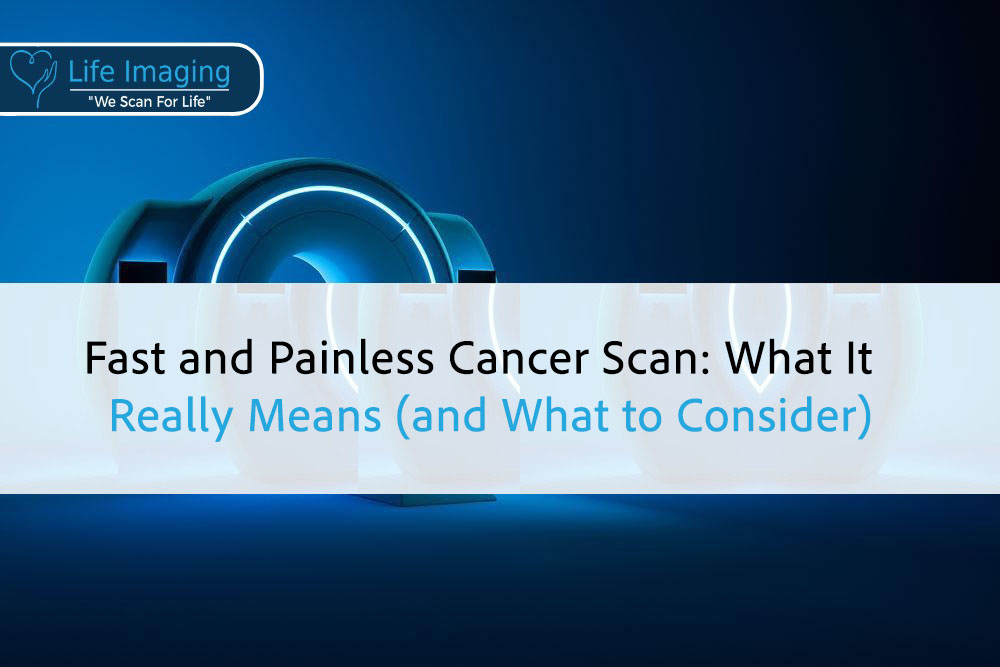
Fast and Painless Cancer Scan: What It Really Means (and What to Consider)
Fast and Painless Cancer Scan: What It Really Means (and
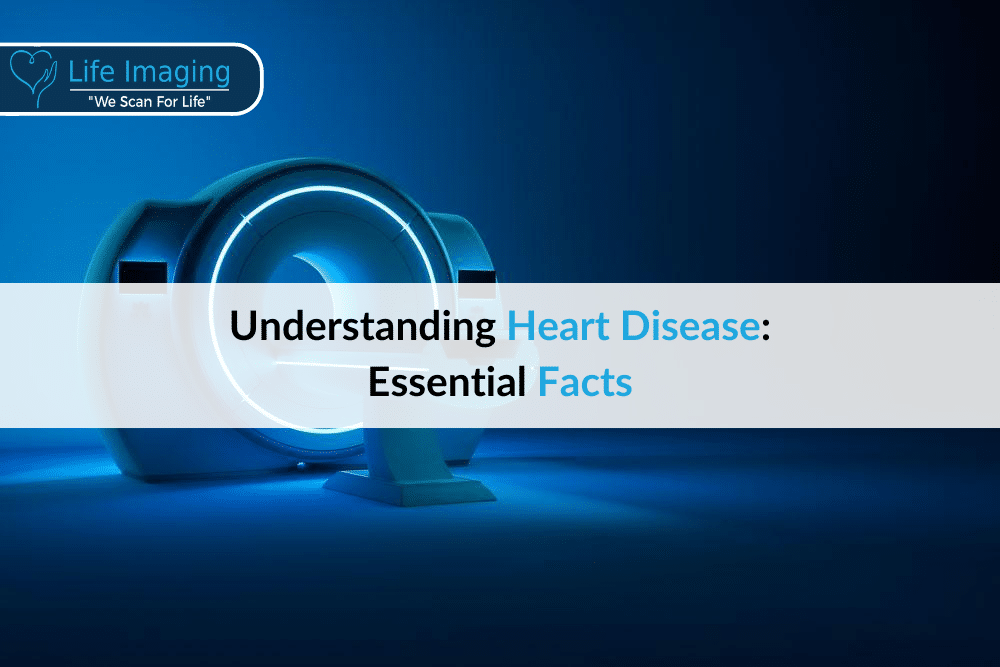
Heart disease ranks as the leading cause of death worldwide, claiming millions of lives each year. Early detection and preventive measures can significantly reduce the risk and impact of this deadly condition. Understanding heart disease is crucial for everyone, especially those who are at higher risk due to factors such as age, lifestyle, or family history.
Life Imaging Fla, located in Deerfield, is at the forefront of early detection for heart disease and cancer. With state-of-the-art imaging technology and a dedicated medical team, they provide invaluable services that empower individuals to take control of their heart health. Through comprehensive screening and accurate diagnostics, Life Imaging Fla ensures that potential heart issues are identified early, allowing for timely intervention.
This article will delve into the essential facts about heart disease, its risk factors, symptoms, and the importance of early detection. By shedding light on these critical aspects, we aim to enhance awareness and understanding of heart disease, encouraging proactive health measures. Join us as we explore how Life Imaging Fla’s advanced imaging techniques are revolutionizing the detection and management of heart disease, ultimately saving lives and improving the quality of life for many.
Heart disease refers to various conditions that affect the heart. It includes problems with the heart’s blood vessels, like coronary artery disease, problems with the heart rhythm (arrhythmias), and heart defects you’re born with (congenital heart defects). Having a clear understanding of what heart disease entails helps in recognizing its impact on individual health and the importance of preventive measures.
Several types of heart disease are prevalent. The most common one is coronary artery disease (CAD). CAD occurs when the arteries that supply blood to the heart muscle become clogged with plaque. This can lead to chest pain, heart attacks, or other serious complications. Another common type is heart failure, where the heart is unable to pump blood efficiently. There are also arrhythmias, which are problems with the heart’s rhythm that can cause a heartbeat to be too fast, too slow, or irregular.
Several factors can increase the risk of developing heart disease. These include:
– Age: As people get older, the risk of heart disease increases.
– Family History: If someone in your immediate family has had heart disease, you are at higher risk.
– Smoking: Smoking damages the blood vessels and heart.
– High Blood Pressure: This puts extra strain on the heart.
– High Cholesterol: Excess cholesterol can clog the arteries.
– Diabetes: Diabetes increases the risk of heart disease.
– Obesity: Excess weight strains the heart.
– Physical Inactivity: A lack of exercise can harm the heart’s health.
Understanding these risk factors helps individuals make better lifestyle choices to reduce their chances of developing heart disease.
Heart disease can present with various symptoms, which can differ depending on the type of condition. Common symptoms include:
– Chest Pain: Also known as angina, this can feel like pressure or squeezing in the chest.
– Shortness of Breath: Difficulty breathing can be a sign of heart disease.
– Fatigue: Feeling tired all the time can indicate heart problems.
– Swelling: Particularly in the legs, feet, and ankles, which can be caused by heart failure.
– Heart Palpitations: A feeling of a fast or irregular heartbeat.
Recognizing these symptoms early can lead to timely doctor visits for further evaluation.
Detecting heart disease early can make a significant difference in treatment outcomes. Early detection means that potential issues can be addressed before they become severe. This can lead to better management of the condition and prevent serious complications like heart attacks or strokes.
Advanced imaging techniques play a crucial role in early detection. At Life Imaging Fla, precise heart scans allow healthcare providers to see detailed pictures of the heart and blood vessels. This helps identify any abnormalities or early signs of heart disease, guiding further preventive or therapeutic steps.
Heart scans, also known as cardiac imaging, involve using specialized equipment to take detailed images of the heart. One common type of heart scan is the coronary calcium scan, which looks for calcium deposits in the coronary arteries. These deposits can indicate the presence of plaque, which is an early sign of coronary artery disease.
The scan is quick and non-invasive. Patients lie on a table while a machine takes X-ray images of the heart. The amount of radiation is minimal, making it a safe option for most people. These images provide vital information about the health of the heart and can be used to guide treatment decisions.
Preventing heart disease involves making healthy lifestyle choices. Here are some tips that can help:
– Eat a Healthy Diet: Focus on fruits, vegetables, whole grains, and lean proteins. Avoid processed foods high in sugar and salt.
– Exercise Regularly: Aim for at least 30 minutes of exercise most days of the week.
– Maintain a Healthy Weight: Keeping your weight in a normal range reduces the risk of heart disease.
– Quit Smoking: Smoking is a major risk factor for heart disease. Stopping smoking will significantly improve heart health.
– Control Other Health Conditions: Manage existing conditions like high blood pressure, diabetes, and high cholesterol.
By following these guidelines, individuals can reduce their risk factors and contribute to better heart health.
Regular check-ups are an essential part of maintaining heart health. Visiting a healthcare provider allows for the monitoring of vital signs and the detection of any early signs of heart issues. These visits can help track blood pressure, cholesterol levels, and other important indicators of heart health.
During a check-up, a healthcare provider can recommend additional tests or lifestyle changes based on individual risk factors. Regular visits ensure that any developing heart conditions are caught early and managed effectively.
Community programs and support groups can also play a vital role in heart health. Many communities offer resources like walking clubs, nutrition classes, and support groups for individuals looking to improve their heart health. Engaging in these programs can provide motivation and support.
Local health fairs and screening events are other opportunities to learn more about heart health and get screened for potential issues. These events often provide free or low-cost services and can be a valuable resource for those looking to prevent heart disease.
Understanding heart disease and taking steps to detect it early can lead to better health outcomes. By focusing on prevention, early detection, and regular check-ups, individuals can significantly reduce their risk of developing heart disease. Life Imaging Fla provides the tools and services needed to identify heart issues early, helping residents of Deerfield maintain their heart health and enjoy a better quality of life.
Heart scans are crucial tools for detecting heart disease early. These scans use imaging technology to create detailed pictures of your heart and blood vessels. There are different types of heart scans, and each serves a unique purpose. Knowing the various kinds of heart scans helps in understanding how they contribute to heart health.
There are several types of heart scans that doctors use to look at the heart:
Each type of scan provides different information, helping doctors find and treat heart disease.
Heart scans offer numerous benefits when detecting and managing heart disease. They help identify problems early, which can prevent severe conditions. Here are some benefits:
– Early Detection: Pinpoints calcium deposits and artery blockages before symptoms appear.
– Detailed Images: Provides high-quality images, giving a clear view of any issues in the heart or blood vessels.
– Guides Treatment: Helps doctors decide the best treatment by showing detailed heart and vessel conditions.
– Tracks Progress: Monitors changes over time to see if treatments are working.
– Non-Invasive: Most heart scans are quick and painless, requiring little to no recovery time.
Understanding these benefits highlights the importance of getting heart scans as part of regular health check-ups.
Knowing what to expect during a heart scan can ease any concerns. The process is simple. Before the scan, patients typically need to avoid eating or drinking for a few hours. During the scan, patients lie on a table while the machine takes images. The procedure is quick, usually lasting no more than 30 minutes. After the scan, patients can return to their regular activities straight away.
Safety is a priority during heart scans. Radiation exposure in scans like CT is minimal and is considered safe for most people. Doctors advise on any specific steps to follow based on individual health conditions.
Lifestyle choices significantly affect heart health. Making healthy choices can reduce the risk of heart disease. Here are some lifestyle factors that impact heart health:
– Diet: Eating a balanced diet with plenty of fruits, vegetables, and whole grains supports heart health. Reducing salt, sugar, and unhealthy fats is also key.
– Exercise: Regular physical activity strengthens the heart and improves blood circulation. Aim for at least 30 minutes of exercise most days of the week.
– Smoking: Quitting smoking is one of the best things you can do for your heart. Smoking damages the blood vessels and heart, increasing the risk of heart disease.
– Alcohol: Drinking alcohol in moderation is important, as excessive drinking can harm the heart.
– Stress: Managing stress through activities like yoga, meditation, or hobbies helps maintain heart health.
Simple lifestyle changes can make a big difference in maintaining a healthy heart.
Regular heart screenings are essential for early detection and prevention of heart disease. Scheduled screenings help track heart health and identify any emerging issues. These check-ups should be a routine part of healthcare, especially for those at higher risk.
Heart scans, as part of these regular screenings, provide invaluable information about heart health. They help in making informed decisions about any necessary lifestyle changes or treatments.
Early education and awareness about the benefits of regular screenings can lead to healthier habits and better long-term heart health outcomes.
There are many myths about heart disease. Clearing up these myths helps in understanding the real risks and prevention methods.
– Myth 1: Only old people get heart disease: Heart disease can affect people of all ages, especially those with risk factors.
– Myth 2: Heart disease only affects men: Heart disease is the leading cause of death for both men and women.
– Myth 3: If you have a good cholesterol level, you won’t get heart disease. Even with good cholesterol levels, other factors like blood pressure, diabetes, and lifestyle can still lead to heart disease.
– Myth 4: You’ll know if you have heart disease: Sometimes, heart disease has no symptoms until a heart attack or other severe event occurs. That’s why regular screenings are important.
Understanding these myths allows individuals to take proactive steps in managing their heart health.
Community education is vital in spreading awareness about heart disease and how to prevent it. Local health programs offer resources like free health screenings, nutrition classes, and fitness programs.
Engaging with these resources can provide valuable information and support for those looking to improve their heart health. Community events also offer opportunities to stay informed about the latest in heart health research and preventive measures.
Support groups for heart disease patients and their families provide a network of encouragement and shared experiences, which can be beneficial for emotional and mental health.
The field of heart health is continually evolving. Advances in technology and research bring new ways to detect and treat heart disease. Scientists are developing more sophisticated imaging techniques, better medications, and advanced surgical methods.
Emerging technologies like wearable heart monitors and AI-driven diagnostics are set to revolutionize heart health management. These innovations offer more precise and personalized care, improving outcomes for patients.
Staying informed about these advancements can help individuals make the most of the latest heart health strategies available.
Taking proactive steps toward heart health starts with education and awareness. Knowing the risk factors, symptoms, and importance of early detection can lead to better health outcomes. Simple lifestyle changes, regular check-ups, and understanding myths can make a big difference.
Heart scans play a crucial role in this preventive approach. By providing detailed and accurate images, they allow doctors to identify issues early and guide effective treatments. This proactive approach ensures that everyone has the best chance at maintaining a healthy heart and living a longer, healthier life.
Heart disease is a significant concern in Deerfield. Local statistics reveal that many residents face risk factors such as high blood pressure, diabetes, and obesity. These conditions increase the likelihood of developing heart-related issues. Understanding the local context helps highlight the importance of preventive measures and early detection in the community.
Deerfield offers several health initiatives aimed at combating heart disease. These programs often include public awareness campaigns, free or low-cost health screenings, and community health fairs. Participating in these initiatives provides valuable information on maintaining heart health and offers access to essential services.
Workshops and seminars on heart disease prevention are frequently organized to educate residents about risk factors, symptoms, and lifestyle changes. Local gyms and fitness centers also offer classes and activities specifically designed to improve cardiovascular health.
By engaging with these local health initiatives, Deerfield residents can gain the knowledge and resources needed to maintain a healthy heart.
Heart scan technology has made significant strides in recent years. These advances have improved the accuracy and effectiveness of heart scans, making early detection of heart disease more accessible. For instance, modern CT scanners can generate clearer images with lower radiation doses, enhancing patient safety.
Innovative scanning techniques like 3D imaging allow for a more detailed view of the heart and blood vessels. These detailed images help doctors make more accurate diagnoses and tailor treatment plans to individual needs.
As technology continues to evolve, heart scans will become even more effective tools in the fight against heart disease, offering better outcomes for patients.
Genetics plays a crucial role in heart disease. If heart disease runs in your family, you may be at a higher risk of developing it. Understanding your genetic risk can help you take proactive measures.
Family history is a significant risk factor. If parents or siblings have had heart disease, it’s essential to get regular check-ups and screenings. Discussing family history with your doctor can lead to personalized advice and preventive strategies.
Genetic research is advancing, and new tests can identify specific genes linked to heart disease. These tests can provide valuable insights, allowing for early interventions and tailored treatments to manage the risk effectively.
Nutrition is a vital component of heart health. Eating a balanced diet helps in maintaining healthy blood pressure, cholesterol levels, and body weight. Here are some nutritional tips for a healthy heart:
– Eat Plenty of Fruits and Vegetables: These are rich in vitamins, minerals, and fiber, offering numerous benefits for heart health.
– Choose Whole Grains: Whole grains like brown rice, oats, and whole wheat bread are good for heart health.
– Limit Saturated and Trans Fats: Avoid foods high in these fats, like red meat, butter, and fried foods. Opt for healthier fats like those found in fish, nuts, and olive oil.
– Reduce Salt Intake: High salt levels can raise blood pressure. Use herbs and spices to flavor foods instead.
– Limit Sugar: Excessive sugar can lead to weight gain and increase heart disease risk. Avoid sugary drinks and snacks.
Being mindful of your nutrition choices can significantly impact your heart health and overall well-being.
Physical activity is crucial for maintaining a healthy heart. Regular exercise helps control weight, reduce blood pressure, and improve cholesterol levels. Here’s how to incorporate exercise into your daily routine:
– Cardio Exercises: Activities like running, walking, cycling, and swimming strengthen the heart and improve blood circulation. Aim for at least 30 minutes of moderate cardio exercise most days of the week.
– Strength Training: Lifting weights or using resistance bands helps build muscle and reduce body fat. Include strength training exercises at least two days a week.
– Flexibility and Balance: Activities like yoga and stretching exercises improve flexibility and balance, reducing the risk of injuries and enhancing overall fitness.
Making exercise a regular part of your routine can lead to a healthier heart and a more active lifestyle.
Stress can negatively impact heart health. Chronic stress contributes to high blood pressure, unhealthy eating habits, and other risk factors. Managing stress effectively is essential for maintaining a healthy heart. Here are some stress management techniques:
– Mindfulness and Meditation: These practices help reduce stress and promote relaxation.
– Deep Breathing Exercises: Taking slow, deep breaths can calm the mind and reduce stress levels.
– Physical Activity: Exercise is an excellent way to relieve stress and improve mood.
– Hobbies and Leisure Activities: Engaging in hobbies or activities you enjoy can help take your mind off stressors.
– Social Support: Spending time with friends and family can provide emotional support and reduce feelings of stress.
Incorporating these techniques into your daily routine can help manage stress and support heart health.
Medications play a vital role in managing heart disease. Various medications help control blood pressure, cholesterol, and other heart disease risk factors. Here are some common types of heart disease medications:
– Blood Pressure Medications: These include ACE inhibitors, beta-blockers, and diuretics, which help lower blood pressure.
– Cholesterol-lowering Medications: Statins and other drugs help reduce cholesterol levels in the blood.
– Blood Thinners: Medications like aspirin or anticoagulants prevent blood clots, reducing the risk of heart attacks and strokes.
– Anti-anginal Medications: Drugs like nitrates help relieve chest pain (angina) by improving blood flow to the heart.
Understanding the role of these medications can help in managing heart disease effectively. Always follow the prescribed medication plan and consult with your doctor about any concerns or side effects.
Follow-up care is crucial for managing heart disease. Regular visits to your healthcare provider help monitor your condition, assess the effectiveness of treatments, and make necessary adjustments. Here’s what follow-up care typically involves:
– Regular Check-ups: Scheduled appointments to monitor heart health and review treatment plans.
– Lab Tests: Tests to check cholesterol levels, blood pressure, and other vital indicators.
– Lifestyle Counseling: Guidance on diet, exercise, and other lifestyle changes to support heart health.
– Medication Review: Evaluating the effectiveness of medications and making adjustments as needed.
Consistent follow-up care ensures that heart disease is managed effectively, reducing the risk of complications and improving long-term health outcomes. Through these regular check-ups, patients can stay on track with their heart health goals and make informed decisions about their treatment and care.
Education is a powerful tool in the fight against heart disease. Learning about the condition, its risk factors and the importance of early detection helps individuals make informed health choices. Sharing this knowledge with friends and family can create a supportive community focused on heart health.
Accessible resources like books, online articles, and community workshops provide valuable information. Participating in educational programs and discussions about heart health also fosters awareness and encourages proactive measures.
Teaching children about healthy habits from a young age instills lifelong practices that support heart health. Schools and community programs play a pivotal role in promoting this education.
Ending this section helps prepare readers for the final steps they can take toward heart health, setting the stage for actionable advice and a call to action in the conclusion.
Heart health is crucial for leading a long and fulfilling life. Understanding heart scans, local initiatives in Deerfield, and the importance of lifestyle choices empowers you to take control of your heart health. Regular screenings, a balanced diet, consistent exercise, and stress management are essential steps in maintaining a healthy heart. Advances in technology and medical research continue to improve the effectiveness of heart scans, aiding in the early detection and prevention of heart disease.
By staying informed and proactive, you can significantly reduce the risk of heart disease. Encourage your family and friends to participate in screenings and adopt heart-healthy habits. Education and awareness are powerful tools in promoting a heart-healthy community.
Are you ready to take the first step towards a healthier heart? Schedule your heart scan today at Life Imaging Fla! Our state-of-the-art facility in Deerfield offers advanced heart scans to help you detect potential heart issues early. Don’t wait for symptoms to appear – early detection is key to prevention and treatment. Visit our website or call us to book your appointment and ensure your heart remains healthy for years to come. Take charge of your heart health now – your future self will thank you.

Fast and Painless Cancer Scan: What It Really Means (and
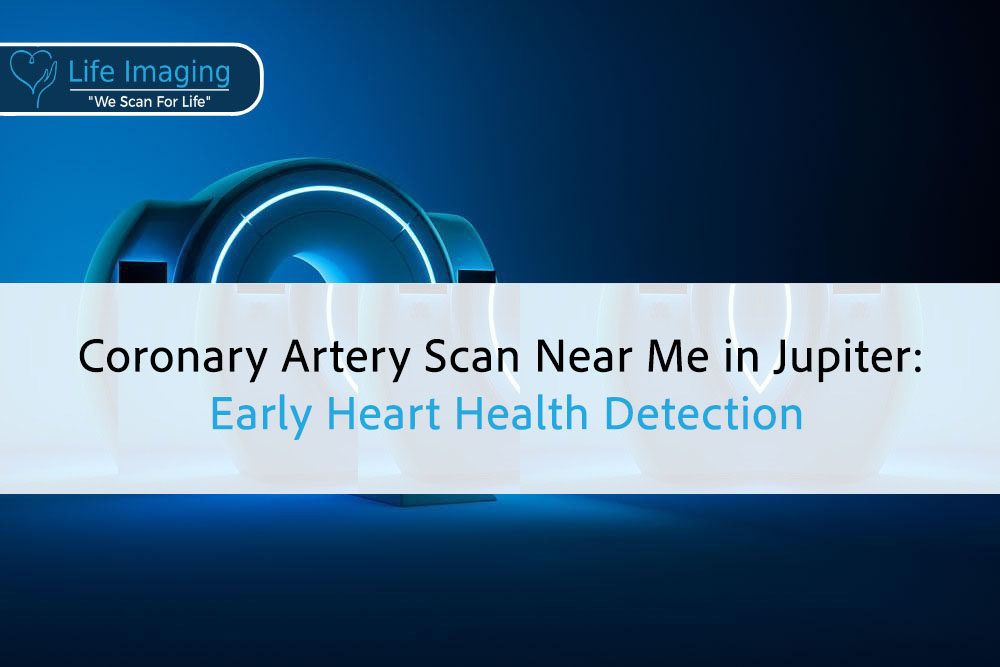
Introduction Your heart works hard every second of the day,
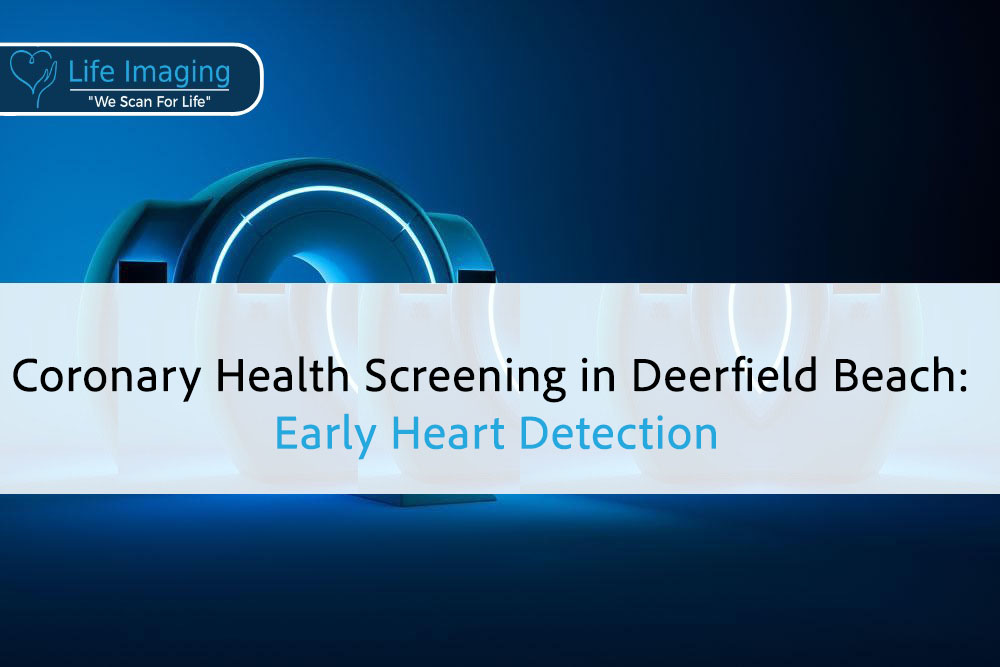
Introduction Your heart works around the clock, but changes inside
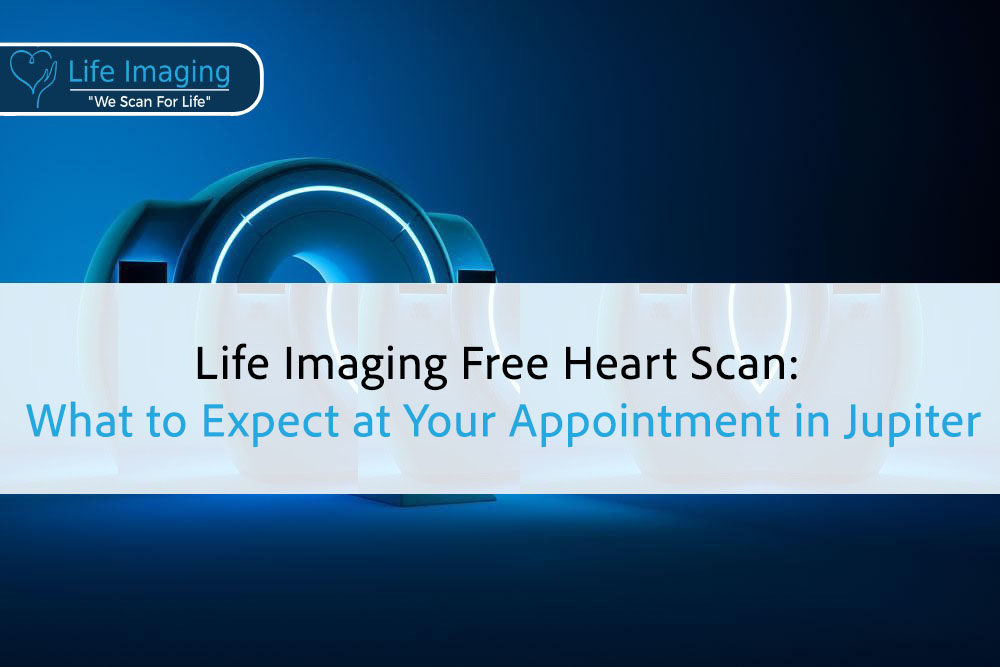
Introduction Your heart works nonstop, often without a single complaint.
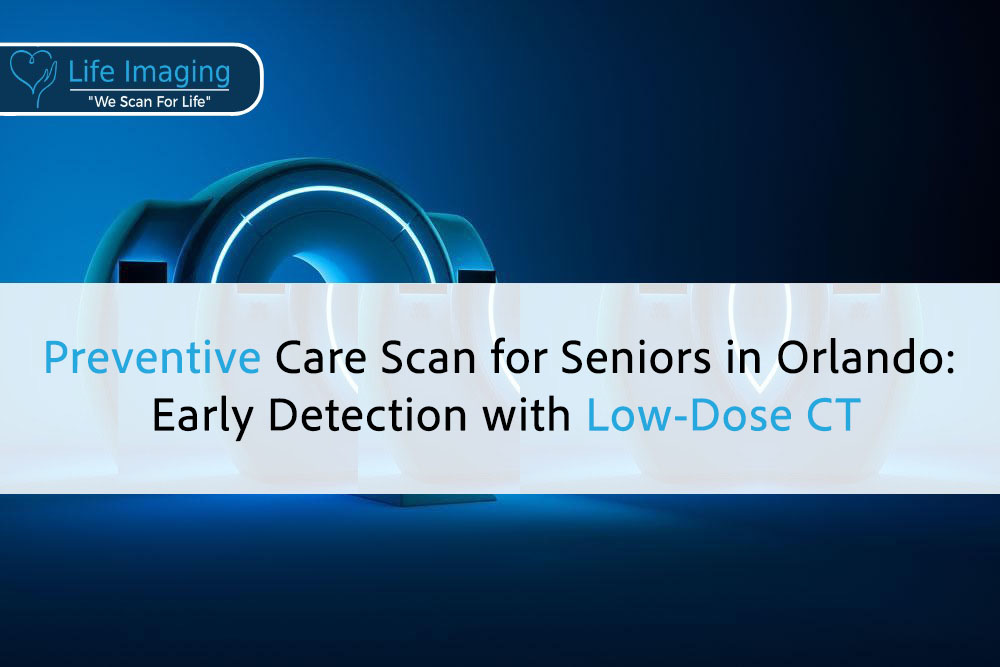
Introduction The best part of getting older is having time
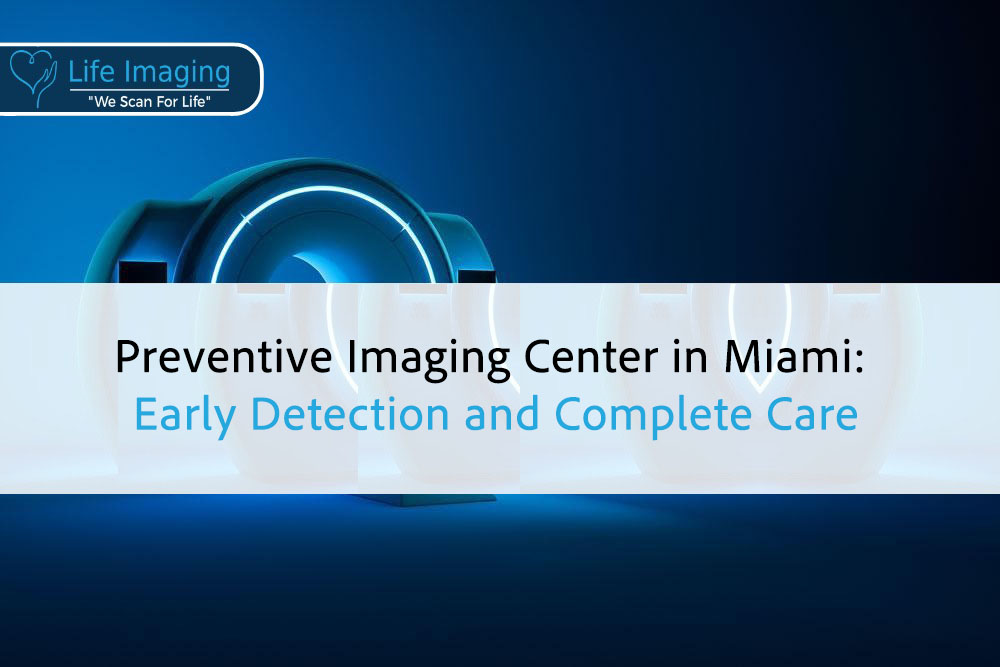
Introduction Good health isn’t just about treating problems, it’s about

* Get your free heart scan by confirming a few minimum requirements.
Our team will verify that you qualify before your scan is booked.
Copyright © 2025 Life Imaging – All Rights Reserved